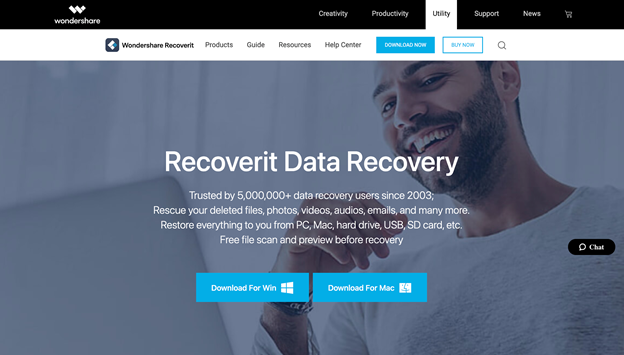How to Keep Your E-Commerce Website Safe and the Top Things to Look Out For
Starting an e-commerce website is a great opportunity to grow a business, whether you are starting from scratch with a brand new launch, or want to expand an existing operation. There are numerous ways to venture into online sales, but if you are really serious about creating a reputable and well-managed online portal for sales, then having a properly maintained e-commerce platform is the way to go.
While there are some fantastic opportunities associated with e-commerce, it also is accompanied by some serious risks that need to be carefully understood. One of the biggest issues that you will need to take into consideration is the safety and security of your online customers, as they are after all, entrusting you with their financial data in order to make a purchase.
There are many ways to understand and secure your e-commerce website, including looking into a cyber security degree. Read on to find out more about the hazards you will need to pay attention to, and how you can protect both your business and your customers.
What does e-commerce involve?
Simply put, e-commerce describes the act of buying and selling items or services online. It has been around for almost as long as the internet itself, and the term covers a wide scope of methods. E-commerce is not restricted solely to a specific online store for goods, although that can be one aspect of it.
Other kinds of online transactions, such as signing up to a paid cyber security degree, downloading music from a paid provider, and even buying and selling used goods casually on eBay and other resale sites, all count as e-commerce. The term also includes a variety of types of sales – for instance, sites that offer options such as click and collect, or the choice to reserve and complete a transaction offline in a physical location also borrow from the e-commerce model.
Of course, nowadays e-commerce takes up a large percentage of all sales, particularly for established brands and retailers. There are few retail brands that continue to operate solely from a physical store, as the expectation and competition from other brands and customers is so demanding. As the world of e-commerce has monopolized retail, it has also become essential for big retailers to enlist the support of experts with a cyber security degree or other high level qualification, in order to address security and safety concerns. Not all businesses will need their own e-commerce security specialists however, and with some careful thought and consideration, it is possible to pay attention to potential risks, and limit any negative impact.
What are the risks associated with e-commerce?

As e-commerce has grown to become the primary method of retail transactions globally, it has also attracted greater threats and criminal activity. In fact, the cost of security breaches have risen into the billions of dollars annually, and is only set to continue to increase, as e-commerce grows in value.
So before you set out into the world of e-commerce, having a clear and broad understanding of the risks involved is essential, in order to take preventative action. While having a cyber security degree or some other formal training will help of course, there are some specific risks and solutions associated with e-commerce that you can learn on the job.
One of the main points of weakness in an e-commerce platform is the software used to process transactions. An online store will acquire a vast amount of customer information, including personal data, names and addresses, banking or credit card information, and more. All of this is of great value to cyber criminals and there have been some headline-grabbing data breaches in recent history that have demonstrated just how costly such an attack can be. The fact that these major online attacks have occurred on the sites of multinational brands such as Adobe and others shows how big a threat they can pose, and that having a cyber security degree or other form of training is only the start of learning how to address the problem.
Some of the most common ways for cyber criminals to attack e-commerce website software is through the use of malware, or DDoS (distributed denial of service) attacks. Both of these work in different ways, and pose varying kinds of threats, which a cyber security degree would explore in greater detail.
Malware can be found in many different forms, including virus infections, ransomware, spyware, Trojan horses and more. The common factor between all of these is the insertion of a malicious form of code into your existing software that allows cyber criminals to access sensitive data, and remove or tamper with it. Malware-based attacks have resulted in the theft of sensitive customer information that is held ransom on the threat of release, for example, with attacks on numerous adult dating sites, to the removal of credit card records from customers or subscribers, which exposes them to potential theft or fraud.
These types of attacks are also not limited to big brands and high-profile websites either – smaller businesses and retail websites are just as likely, or even more so, to be exposed to these, as they may potentially have fewer safety measures in place to prevent a breach.
A cyber security degree will also highlight another form of attack – known as DDoS. These may not steal or remove customer data, but can impact an e-commerce site in a different way. Rather than stealing information, a DDoS attack involves overwhelming the server to incapacitate it, with an immense volume of automated traffic. This can impact an online business by making the website inaccessible or unusable, and lead to a loss of income by preventing real customers from being able to access it.
Another common threat to e-commerce is one not faced directly by the retailers, but by customers instead. This involves fraudulent sites posing as a legitimate e-commerce site, either by creating a fake or replica platform that is convincing enough to mislead a customer. These can often be made with a high degree of sophistication, and even people with a cyber security degree can be led astray by such sites.
These fraudulent sites will often target customers through an email link, where a link to a fake website can be easily embedded into an email that appears legitimate. They may often flag a potential security breach, and urgently request the customer to sign in to their account to change their personal information, thus giving the fraudulent site access to sensitive and secure data. They may also pose as offering a lucrative or time-sensitive special deal, or an advert designed to encourage the customer to make a transaction. The fraudulent nature of the attack might not be noticed, until the customer sees that the purchased item never arrived.
While these types of attacks will impact the customer directly, they also have a knock-on effect on businesses, as the materials on a cyber security degree would demonstrate. They can severely impact the reputation of a brand, leaving customers feeling insecure and unsure about the legitimacy of the actual e-commerce platform, as well as concerned about the safe-keeping of their data. And while the e-commerce business in question may not be at fault, unhappy customers may still attempt to take action and get their money back from them, which can further impact a brand’s standing.
Ways to keep your e-commerce site safe
While there are numerous risks posed to both e-commerce businesses and their customers, the good news is that there are many measures that you can take to prevent an attack. A cyber security degree will suggest taking some of the following types of action:
-
Protect your business’ trademark, website domain and other forms of identity
A replica website or payment portal is a common way for cyber criminals to commit fraud, and the best way to prevent this is by making active effort to protect your business identity in all spaces. You should ensure that your business name is registered legally, along with any identifying symbols or trademarks, and ensure that you have ownership of any major domain names with your business name in it. This can prevent fraudulent sites from attempting to establish a false website with a similar or identical name, which may easily convince unwary customers. It can also give you greater protection in the event you have to make a legal dispute.
You should also communicate to customers immediately if there are any concerns about false sites appearing. Having an established system in place that customers are aware of, for example, being clear that you will never email them to ask for sensitive information, can also help to prevent fraud, as customers are more likely to be able to identify a questionable message from an authentic one.
-
Use a trusted e-commerce platform
As a cyber security degree will highlight, many attacks on e-commerce websites also arise from the use of poorly designed platforms that lack sufficient security measures.
To minimize risk, you should choose a trusted and reputable e-commerce platform that is recognized as being a reliable option, and is open about providing comprehensive security and safety support for both retailers and customers alike. If you are unsure, a good place to start is by looking at the websites of other competitors or similar-sized brands, to find out what platform they are using.
Once you have a platform in mind, you should also do comprehensive research to find out about the support they offer, as this may vary according to different options or packages. You should also identify what kind of solutions are available in case of a fraudulent attack, and if you require additional protection or insurance to keep your business safe.
-
Ensure your website is up to date
Another common form of attack on e-commerce sites is through the insertion of harmful code or software, such as through a virus or spyware, which can allow cyber criminals to access secure information or financial data. One way of minimizing the risk of this taking place is ensuring that your website and all systems are kept up to date. Regular security updates will often resolve any potential issues that may have been highlighted, or include improvements to existing security measures. By staying on top of this, you can make it more difficult for potential hackers to breach your e-commerce site.
-
Use secure encryption to protect transactions
Secure encryption through the use of SSL (secure sockets layers), which is one of the most common ways to add an extra level of protection to your e-commerce site, and is often highlighted on a cyber security degree as a good solution. An SSL works by providing an encrypted link between the customer’s browser and your e-commerce site’s server, ensuring that any information exchanged, such as a financial transaction or personal details, are kept private and safe.
Not only does this help to keep your e-commerce site safe to use, but it will also enhance customer trust and brand reputation. Customers can identify if this layer of security is included in a website when they visit, as it will usually include an extra “s” in the URL, instead of the standard “http”. Some browsers will also flag sites without a security layer as being potentially hazardous, dissuading people from using them.
-
Keep passwords and verification processes as strong as possible
Poorly created passwords are another common weakness that makes e-commerce sites vulnerable to attack, and these can occur on both the customer and business end, particularly with smaller businesses. For self-employed individuals who may be running an e-commerce site, or organizations with few members, the temptation may be there to use a simpler password or security process, as there is a lower perception of risk.
However, as with all things related to a cyber security degree, online attacks are not limited just to those with a large presence – a small e-commerce site might be easier to attack, making it more appealing to potential criminals. You should always ensure that any administrative login information is kept safe and secure, and not shared unnecessarily with people who you do not trust. It is also best to keep your password as strong as possible, with a lengthy mix of characters, cases, numbers and symbols. Password generators can be a helpful tool in this case, although you should avoid using a generator that does not produce a random password. You may also want to limit the number of devices that you use to access your e-commerce platform, as this can also increase the risk of a potential breach.
When it comes to your customers, you should also encourage them to use a strong password, and if possible, a double verification process. This will often include a secondary form of identity authentication, such as confirmation of a numerical code sent to their phone or email, or a direct phone call or message. Many e-commerce platforms will enable you to check password security when this is being set, and guide a user towards a safer form of password. While this can sometimes appear to be an inconvenience, the additional security it provides will ensure there is greater peace of mind for both your customer and your business.
-
Be wary of potentially fraudulent patterns
E-commerce attacks can be both large and small, but both can have a severe impact on a business. A cyber security degree will flag common trends in e-commerce fraud, such as common forms of malware that have been used to attack several businesses. However, there are also other indicators that can flag potential fraudulent attacks on your e-commerce site that may initially get overlooked.
These can often arise when transactions appear to be made by a number of ordinary individuals. They may target your business in repeated and specific ways, such as by ordering goods overseas, making it more difficult to recover items that have not been paid for, or making fraudulent refund claims under different identities. To identify such issues, it is useful to carry out regular audits of your transactions on a frequent basis, and investigate any potentially concerning instances that you may find. By acting promptly and quickly, you may be able to prevent further attacks or fraudulent transactions from taking place.
-
Have a verified and tracked delivery service
The rise of e-commerce has meant that online orders and physical deliveries of items all over the world are now extremely commonplace. This shift in retail has also given rise to a number of courier services, who can help businesses offer a fast and competitive way to fulfil orders.
However, this can also make an e-commerce business open to potential attack or financial loss, with the risk of orders not being delivered correctly, or claims from customers that they have not received goods. While this is not the kind of attack you may find in a cyber security degree course, it can still have quite a detrimental impact on a business, particularly smaller ones.
To prevent issues and disputes with item deliveries, it is always worth using a tracked delivery service that provides updates for the item at all stages of its journey, from its collection and consignment at a depot, to confirmation of the final delivery with a verified name or signature at the end. This provides greater assurance to both the customer, who can be confident that their item will be delivered safely, and the business, who has clear evidence in case of any dispute about a transaction.
-
Ensure customer data is securely stored
Customer privacy is a critical element in e-commerce, and sensitive data is often one of the main targets for cyber criminals when carrying out a security attack. One simple step to reduce the risk of harm is only asking for essential customer information, and avoiding collecting vast amounts of private data that are not necessary for the transaction. While customer sign-up forms and order forms may appear to be a good opportunity to collect additional information to help with marketing activities, it can be difficult to securely maintain an enormous database with a vast amount of private information.
Any information you do keep, such as personal details and financial data, should be kept secure in a location that is kept offline. This will provide protection and limit access, as criminals will not be able to breach a secure database without access to an actual physical location. However, with a greater amount of information kept online, another suggestion from a cyber security degree would be to ensure that all online information is kept encrypted at all times, and that staff access customer data through a VPN, or virtual private network. This can help minimize exposure to scenarios that present risks. You should also aim to carry out regular audits and checks of your systems to monitor activity, and take prompt action against any confirmed or perceived threats.
-
Protect your business with insurance
While you can make every effort to minimize the risk of fraud and security breaches on your e-commerce site, it is never possible to cover every potential hazard. This can be a devastating and deeply upsetting event, not to mention something that can have immense financial consequences for your business, which may be difficult to recover from.
Having a comprehensive insurance policy in place to cover you in case of cyber crime is essential for any business today, and will provide you greater peace of mind with your e-commerce site, as well as ensuring that you are able to keep customers happy, in case of an attack. You should look into any potential policies in detail to make sure you are covered in all eventualities. A cyber liability policy, for example, will ensure that you are able to recover the financial loss resulting from an attack, and will also provide support in notifying customers of a potential breach, investigate the source of the attack, and in some cases, even help a business with PR, to mitigate the damage to their reputation.






